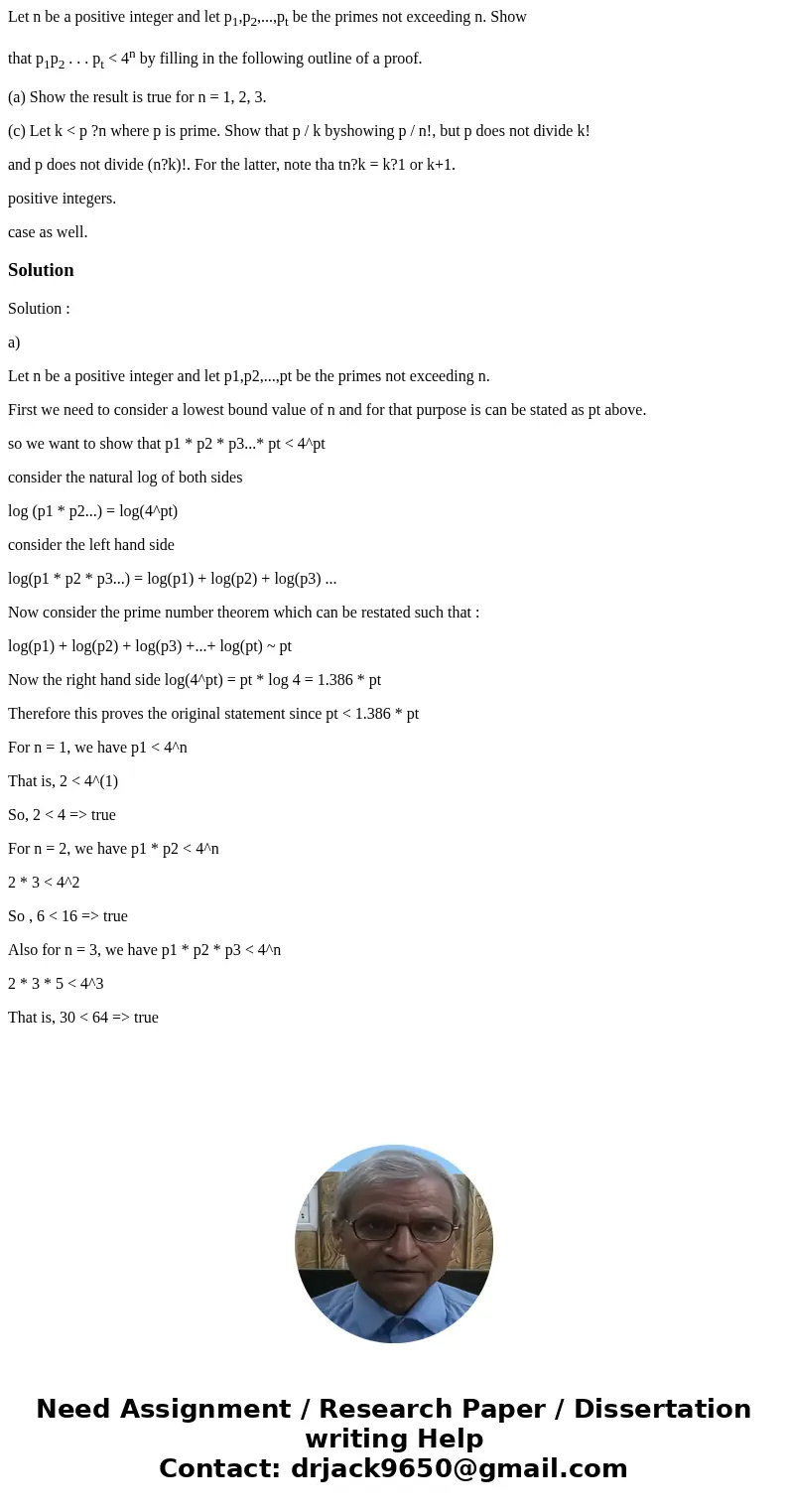Let n be a positive integer and let p1p2pt be the primes not
Let n be a positive integer and let p1,p2,...,pt be the primes not exceeding n. Show
that p1p2 . . . pt < 4n by filling in the following outline of a proof.
(a) Show the result is true for n = 1, 2, 3.
(c) Let k < p ?n where p is prime. Show that p / k byshowing p / n!, but p does not divide k!
and p does not divide (n?k)!. For the latter, note tha tn?k = k?1 or k+1.
positive integers.
case as well.
Solution
Solution :
a)
Let n be a positive integer and let p1,p2,...,pt be the primes not exceeding n.
First we need to consider a lowest bound value of n and for that purpose is can be stated as pt above.
so we want to show that p1 * p2 * p3...* pt < 4^pt
consider the natural log of both sides
log (p1 * p2...) = log(4^pt)
consider the left hand side
log(p1 * p2 * p3...) = log(p1) + log(p2) + log(p3) ...
Now consider the prime number theorem which can be restated such that :
log(p1) + log(p2) + log(p3) +...+ log(pt) ~ pt
Now the right hand side log(4^pt) = pt * log 4 = 1.386 * pt
Therefore this proves the original statement since pt < 1.386 * pt
For n = 1, we have p1 < 4^n
That is, 2 < 4^(1)
So, 2 < 4 => true
For n = 2, we have p1 * p2 < 4^n
2 * 3 < 4^2
So , 6 < 16 => true
Also for n = 3, we have p1 * p2 * p3 < 4^n
2 * 3 * 5 < 4^3
That is, 30 < 64 => true

 Homework Sourse
Homework Sourse